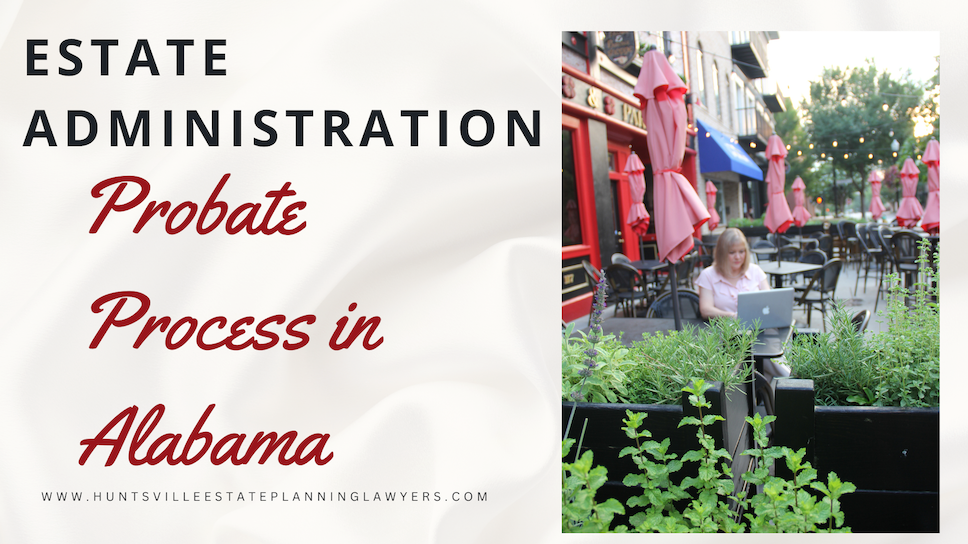The probate process in Alabama is the legal process by which a deceased person’s assets are transferred to their beneficiaries or heirs and their debts and taxes are paid. This process through the probate court is called “estate administration.” This process involves settling the person’s financial obligations, ensuring that their assets are properly valued and distributed to the rightful beneficiaries or heirs, and handling any legal and administrative tasks associated with the estate.
Whether or not the decedent had a Last Will and Testament, if an estate needs to be opened to manage and transfer assets and pay debts, that estate will be opened in the Probate Court. The process will be different for those with a Will than those without a Will. An estate is opened when someone files a petition with the Probate Court to open the estate.
To prepare for that process, you will need to obtain multiple death certificates, gather important documents such as a Will, life insurance policy, and asset and debt information. You also need to find an estate administration attorney a/k/a probate attorney to help you with this process. She can prepare the necessary paperwork and walk you through the probate process.
Difference Between Letters Testamentary and Letters of Administration
If there was a Will, that petition is called “Petition for Letters Testamentary” and a “Petition to Probate Will.” This Petition will be filed, with the help of an attorney, by the person named in the Will as the Personal Representative (a/k/a Executor). The Probate Judge will then issue “Letters Testamentary” which is essentially a court order that allows the person named in the Will as the Personal Representative to manage the estate.
If there was not a Will, the petition is call “Petition for Letters of Administration.” The person who files this Petition can be an interested person such as a spouse, child, or creditor. There are rules determining who has priority to file and how long that person has to exercise that priority in being named as Administrator of the estate, so it’s imperative to speak with an estate administration attorney soon after your loved one’s passing. Once the Petition is filed, the Probate Judge will issue “Letters of Administration” which is essentially a court order that allows that person to manage the estate.
Probate Process Steps
Here’s a general overview of the probate process in Alabama:
- Filing the Will (if applicable): If the deceased person had a valid will, it should be filed with the probate court in the county where the decedent resided. Your attorney will help you determine the initial validity of the Will and whether it’s a “self-proving” will. The court will ultimately determine the will’s validity, but you shouldn’t be concerned about this initial step if the Will was properly prepared and executed.
- Petition for Probate: The personal representative named in the will, or an interested party if there is no will, must file a petition for probate with the local probate court. This initiates the probate process. If there is not a will, the person who files to be the Administrator of the estate will have to secure a bond.
- Appointment of Personal Representative: The court will review the petition and, if everything is in order, appoint the personal representative (or administrator) to administer the estate. The personal representative is responsible for managing the deceased person’s assets, paying debts, and distributing assets to beneficiaries.
- Notice to Creditors: The personal representative must notify creditors of the estate by notifying known creditors directly and publishing a notice in a local newspaper or other publication. Creditors have a specific period in which to file claims against the estate. The attorney will generally handle this part for the personal representative. However, the personal representative is responsible for providing all known creditor information to the attorney.
- Inventory: The personal representative should prepare an inventory of the decedent’s assets and have them appraised. This is required for estates without a will. This inventory should include both real property (such as land and real estate) and personal property (such as bank accounts, vehicles, and personal possessions). A properly prepared Will waives the requirement for a personal representative to file an inventory with the Probate Court, but it’s best practice for a personal representative to do an inventory and appraisal for his or her own benefit and the benefit of the beneficiaries of the estate.
- Payment of Debts and Taxes: The personal representative is responsible for paying the decedent’s debts and taxes from the estate’s assets. This may include outstanding bills, funeral expenses, and any federal or state taxes due. The personal representative is responsible for filing the decedent’s income tax return.
- Distribution of Assets: After debts and taxes are paid, the remaining assets can be distributed to the beneficiaries or heirs according to the terms of the will or Alabama’s intestate succession laws if there is no will. If there is no will, the Probate Court has to give you permission to distribute the assets. The Personal Representative, with the assistance of the attorney, should secure a signed receipt from the beneficiaries as evidence they received all they were entitled to receive.
- Final Accounting: If there is not a will, the personal representative must provide a final accounting to the probate court, detailing all transactions related to the estate. A properly prepared will waives that accounting requirement.
- Closing the Estate: The Personal Representative, with the assistance of the attorney, should secure consent from the beneficiaries to close the estate and file those consents with the Probate Court. Once the court is satisfied that all necessary tasks have been completed, it will issue an order to close the estate, and the personal representative’s duties will conclude. If there was not a will, the Administrator will be released from the bond he or she was required to obtain at the beginning of the process.
Process Can Vary
The probate process can vary depending on the complexity of the estate and whether there are any disputes or challenges to the will. The cost of the probate process can vary as well depending on the complexity and whether there are challenges or disputes. The cost is much less if there is a will than if there is not a will.
Probate Attorney
Contact Huntsville Estate Planning Lawyer, LLC to help you through the probate process in Alabama. You can schedule a complimentary virtual consultation by clicking HERE and scheduling directly online. You can also call, 256-361-1221, to schedule a complimentary virtual consultation.






